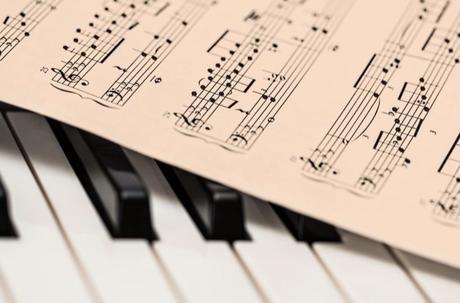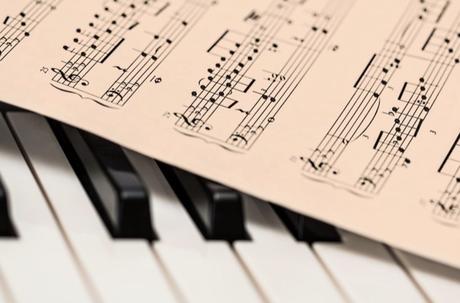

One would normally believe that the act of learning to play an instrument is just a matter of learning a singular skill but in fact, learning to play an instrument from a young age, and understanding how music works as well as getting involved in it, has been proven to be beneficial in many different areas.
Piano, especially, is one of the best alternatives to pick from among a great variety of instruments, considering the reasoning behind the research. But before we get into that, let's talk about why you should even consider it.
A Little ExplanationLet's talk about how the advantages of learning how to play an instrument are far greater than one would expect. For example, and as mentioned in this article, a study published by a child psychiatry team in the Journal of the American Academy of Child & Adolescent Psychiatry linked learning about music and playing instruments to a noticeable improvement in mental health, reduced anxiety and stress, better control of negative emotions and enhanced concentration capabilities.
The reasoning for why this happens is pretty simple. First of all, the proof was found during MRI scans, showcasing an improvement of mass in several areas of the brain, more specifically talking, in areas of the brain that are related to the control of emotions, memory, focus, decision making, and motor movements.
Surprisingly enough, these results didn't involve how much time the person practiced an instrument, but from which age it the person started learning. So, it directly translates how essential it is to practice learning an instrument from a young age.
Other Benefits to Consider

Music is probably the closest thing there's is to something that could be described as magic. It transcends barriers to a point where language, age, and gender become trivial things. It's probably one of the best ways of transmitting emotions, and I would dare to say it's the most important form of art.
And understanding that learning an instrument is not only about the act of playing it, but also understanding music, is absolutely essential. And the benefits of listening to music are also included in the pack, as there are many, as it is mentioned here https://www.healthline.com/health/benefits-of-music.
You see, music is something that connects us as a society. And it's also something we can all relate to, no matter the situation. It enhances the flavor of other forms of art as well, and movies or video games without music could be considered blasphemy by now.
Cheerful music during a festival will excite people, and rise the tension to higher levels. During a sad scene in a movie, the right sonata will result in tears and broken hearts. The right BGM in a video game will melt with it and create a situation that feels natural. The music then becomes the salt, sugar, and pepper of the world of arts.
But it goes beyond that. Music is a great way to understand people's emotions, and it also turns into a focal point to understand your own emotions as well as canalize them. According to research, people who often listen to music are less prone to suffer from stress, depression, and mood swings!
And it's also has been studied as a possible way to treat people with panic attacks, lack of motivation, depression, anxiety, and other conditions that might affect the daily lives of those affected by them.
Overall, people use music to feel better, but not only in positive ways but also in negative ways. People who have a hard time letting out their emotions and being honest with themselves and their own sadness might find music as a perfect valve to drain themselves of their thoughts and emotions, letting themselves cry when needed.
Others might use music as a scape from stressful situations involving bad relationships, poor job environment, among other possible situations. Music, thus, becomes a spiritual aspirin for the soul in many circumstances.
The Science Behind the FactsThere are many reasons why learning an instrument might be as beneficial as portrayed in this article, but the main ones I'm going to touch include hand movements, reasoning, concentration, and discipline.
As you might have already guessed, most instruments out there require complex hand movements and finger positioning, and piano lessons for kids are particularly complex when it comes to memorizing the right notes using the fingers in more than 80 options. Guitars are another good example of this.
Focusing on complex hand movements and finger positioning since a young age has been proven to improve cortex development and can also help with some mental diseases related to a lack of body control.
The concentration and reasoning aspects of the process play an important role as well. Learning to play an instrument is not only something physical, but mental, and a lot of memorizing is involved. Also, concentration is required to properly play music, considering the complex movements required to perform them.
And last but not less important, the discipline required to learn the practical and theoric aspects directly translates to a better sense of discipline at later ages, making it easier for the child to perform well in other aspects of their life.
Playing music is also linked to better decision making, which leads to a greater distinction of priorities, which is an important skill to develop not only as children or adolescents but adults as well.
Recommended Age to LearnThe best age to learn to play instruments depend heavily on the specific one you have in mind. You should also take into consideration your child's personal interests, but you can let him or her try various options to see which one fits them the most.
Piano and violin, for example, are great to be learned at 4-5, whereas guitar, cello, and saxophone are better at 7-9. Drums are better to consider after 7, and singing should be learned after 12 because children require to have a more grounded voice in order to learn and develop their vocal skills.

